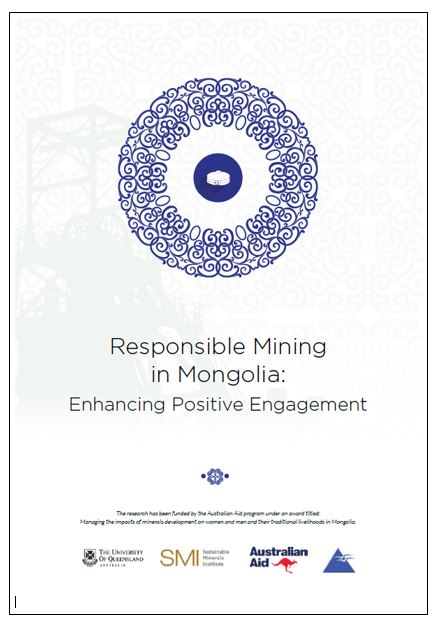Responsible mining in Mongolia: enhancing positive engagement
Part discussion, part handbook, this document aims to bridge the gap between the current understanding of the impact of mining on Mongolian herder communities, in particular the different impacts on women, men and their traditional livelihoods. It explores the interactions between herding and mining in Mongolia; the current and future socio-economic, institutional and ecological factors that influence this interaction; and how mining projects influence the current gender roles and responsibilities in traditionally herder communities. The handbook presents a discussion around six themes as separate chapters (local community development, water, pasture, dust, resettlement and displacement, and artisanal and small-scale mining); with gender and governance issues cutting across all chapters. It also offers several recommendations for how local government, national government, and mining companies and developers operating in Mongolia can translate these findings into actions that will support responsible minerals development in the future. The research was funded by the Australian Government Overseas Aid program through the Department of Foreign Affairs and Trade. CSRM Contributors: Dr Isabel Cane, Ashlee Schleger, Professor Saleem Ali, Assoc. Prof. Denna Kemp, Dr Alex Lechner, Dr. Byambajav Dalaibuyan, Professor Neil McIntyre Other Contributors: McKenna, P., Lahiri-Dutt, K., Bulovic, N.
Publisher: Sustainable Minerals Institute
Type: Report
CITATION
Cane, I. Schleger, A. Ali, S. Kemp, D. McIntyre, N. McKenna, P. Lechner, A. Dalaibuyan, B. Lahiri-Dutt, K. & Bulovic, N. (2015). Responsible Mining in Mongolia: Enhancing Positive Engagement. Sustainable Minerals Institute: Brisbane.

